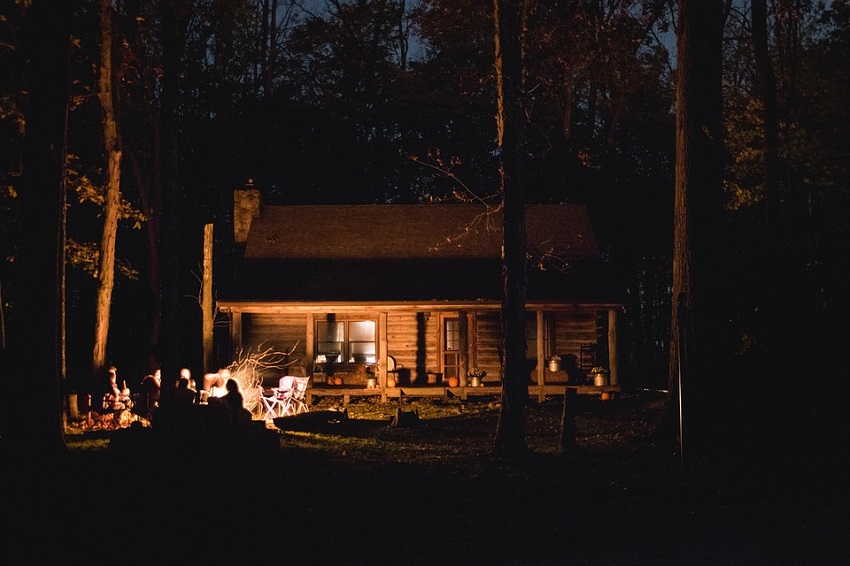
In 2022, the short-term rental industry saw a record 62 billion in revenue, with more nights booked than in any other year. Although the economy remains uncertain, short-term and vacation rentals continue to be trusted, predictable investments. Real estate investment in general is one of the leading inflationary hedges among all asset classes.
Thank you for reading this post, don't forget to subscribe!At The Short-Term Shop, our experts understand how life-changing smart short-term rental investments can be. That's why we connect investors to premier short-term and vacation investment properties, across the hottest markets in the country.
When you're looking to diversify your portfolio, look no further. Explore the top assets outside the stocks, bonds, and mutual funds of the stock exchange. Real estate investing is an invaluable part of any successful investment strategy.
Are you looking for the best real estate in homes, condos, lands, and foreclosure properties? The expert agents of The Short Term Shop can connect you with the most profitable rental assets on the market.
Popular Physical Property for Consistent, Significant Cash Flow
From the Great Smoky Mountains to Panama City Beach, Dauphin Island, the Outer Banks, Crystal Beach, and beyond, the best vacation rental locations are top-tier.
Raw land can be speculative and take years to develop. Commercial and industrial real estate like office buildings, apartment buildings, and manufacturing plants can be extremely expensive and vacancy prone. Short-term rentals in prime locations are different.
First, let's cover the estate market outlook and what any successful investor needs to know. Then, we'll dive into the four best types of real estate investment.
Real Estate Investment: What Does It Look Like?
As we move deeper into 2023, digital real estate investing continues to flourish. With economic uncertainty and recession worries, many investors are shifting their focus online to hands-off, interstate, and international investments. These remote opportunities and crowdfunding platforms are preferred for several reasons.
- No in-Person Meetings
- No Physical Paperwork
- Passive Income
- 24/7 Data Access
As passive real estate investment opportunities continue to grow, new online real estate companies continue to prosper. A trend toward sustainable and 'green' assets is also attracting commercial, industrial, and residential real estate investors.
A diversified investment portfolio may soon include commercial and residential properties with solar panels, energy-efficient infrastructure, and cutting-edge eco-friendly features that benefit mother nature as well as the investor. An investment property with progressive energy accommodations is more likely to attract higher rent prices and appreciate predictably.
Due to this increase in digital management and innovative assets, so-called traditional real estate may soon play a smaller role in investment portfolios.
Where to Invest in Residential and Commercial Real Estate
Despite inflationary pressures and economic distresses, residential and commercial real estate flourish in certain markets. While regions like the West Coast and Northeast see surplus demand and increasing property prices, the Midwest and some Southern locations enjoy excess supply and competitive prices.
Accelerated population growth and burgeoning economic sectors attract passive investments to many well-known cities. From single-family residential property to lucrative retail real estate and promising raw land, accredited investors flock to opportunities in cities like Raleigh, North Carolina, and Austin, Texas.
These residential and commercial real estate hotbeds are just the tip of the iceberg for popular and emerging markets.
How to Capitalize on Post-COVID-19 Trends
A good real estate investing strategy would be remiss without targeting specific properties in the post-COVID-19 era. As we all know too well, the pandemic led to various lockdowns and restrictions. During this time, there was a shift toward remote, digital, and distanced interactions, evolving the way we approach real estate investing.
Not only that, but the entire workforce is still changing as a result.

Nowadays, many jobs and careers are remote or hybrid. This means owners of residential properties, tenants in commercial properties, and prospective investors are all seeking the same thing.
The Market Research Is Clear: Tenants Want Convenience!
One effective way to ensure rental cash flow is to ensure the rental property is remote-friendly. Because more people are working from home than ever, a good investment property must accommodate. Home office spaces, reconfigured rooms, and high-speed internet connections are all must-haves.
Any current or prospective property owner should consider these features as they rent out their residential or commercial space. Modern property ownership demands modern solutions.
Consider the many types of real estate investment in the short-term rental asset class.
Vacation Rentals
Short-term rentals are any accommodations with short rental periods, typically varying from several days to several weeks. As vacation rental platforms like Booking.com, Airbnb, and Vrbo explode on the market, renters, guests, and tenants seek temporary housing.
Although vacation rentals are found across the real estate market, they're most notably popular in hot tourist destinations. A vacation rental is usually rented out on a nightly or weekly basis and can deliver great returns during peak travel times.
Advantages of Vacation Properties
- Increased Income: Vacation rentals have a higher rental income potential than your typical residential real estate investment. This is because the competition is often fierce during vacation periods. Seasonal highs drive up rental rates, making vacation rentals potentially very lucrative.
- Versatility: Because vacation rentals can be rented on different bases for varying rates, they provide a level of versatility that other investments lack. A real estate owner can take advantage of seasonal fluctuations and peak tourist periods for maximum profit.
- Tax Advantages: As with other types of commercial and residential real estate, vacation rentals offer tax benefits through depreciation, deductions, and capital gains tax deferral. Investors can reduce their taxable income by subtracting relevant expenses.
Disadvantages of Vacation Properties
- Property Management: If you're managing the property directly, this can be exhausting, costly, and time-consuming. It's better to have a property manager handle the daily responsibilities. One part of a successful rental property investment strategy is to outsource to local contractors, tradespersons, and specialists. A professional property management company can especially help with Airbnbs and Vrbos.
- Rent Fluctuations: Vacation real estate is often at the mercy of the market. When it's the off-season, it can feel like a drought. But when the peak tourist time arrives, you may have too many people wanting to rent. These seasonal shifts may affect your passive income. Short-term rental management software can help you to understand trends and strategize according to fluctuations in your market.
- Investment Amount: Because vacation rentals are located in hot markets, they're highly coveted. This can drive up prices and cost the investor significant money. The down payment and mortgage payment amounts may be high. However, strategic pricing opportunities in short-term rental markets can help you effectively manage mortgage responsibilities.
Investors seeking to generate passive income without managing properties often consider vacation rentals. Typically, vacation rentals may include single-family homes, condos and apartments, luxury estates, and villas.

Single-Family Vacation Homes
Single-family homes are most common among vacation rental properties. Due to increased privacy, accommodations, and amenities, these properties are especially hot on Airbnb and Vrbo. Because of this, investors can reasonably charge higher rents and fees.
That said, single-family vacation homes often require more maintenance than other vacation rentals.
Many investors may also choose to start their own Airbnb business. Therefore, the business owns the property, not the individual. This is a professional way to manage and operate vacation rentals for increased cash flow and reduced taxable income.
Condos and Apartments
Condos and apartments provide that perfect urban or beachfront experience at a more affordable rate. Investors don't have to spend as much as if they were buying a single-family home. Investors should also consider the amenities, like concierge services, swimming pools, business centers, and fitness studios, as these features may drive up rent prices. As always, investors should perform a smart market analysis before determining prices.
Villas and Luxury Homes
Nothing beats a supreme property for that large family vacation or gathering. These unmatched residences provide all kinds of top-tier amenities. They may come with personal cooks, swimming pools, and tennis courts, and usually offer easy access to many local attractions. Investors can take advantage of these unique aspects by charging higher rents and fees.
Corporate & Business Rentals
This section doesn't refer to commercial real estate like an office building or mixed-use property. Corporate rentals, in this sense, are a form of residential real estate. This type of rental property is suitable for business travelers who need a place to stay for a weekend trip, a few weeks, or even months.
Advantages of Corporate Rentals
- Easy Money: Collecting rent is easy, even if you demand money upfront. After all, business travelers need a place to stay and oftentimes their business may foot the bill for the travel and lodging.
- Reduced Management: Of all the types of real estate in the short-term market, corporate housing requires the least maintenance. Business travelers aren't there for vacation, they're there for work. In other words, they're not necessarily demanding lavish amenities and services.
- Long-Term Potential: Some business travelers may need a place longer than initially expected. In other cases, they require residential real estate that can accommodate them for months on the job. Whatever it may be, this form of residential real estate can turn long-term quickly.
Disadvantages of Corporate Residential Real Estate
- Demand Ceiling: Although you can renovate or repurpose corporate housing real estate, it's usually not suitable for vacationers. Moreover, the location of this real estate may limit its appeal to people traveling outside of business.
- Business Demands: Business travelers typically aren't looking for beachfront locations or tourist destinations. That said, they do expect furnishings and features such as high-speed internet, multiple televisions, business offices, and other hotel-like amenities.
Many Types of Real Estate Investment Companies Provide Corporate Housing
While corporate apartments are often located in metro areas and business hubs, corporate homes are usually nestled in private communities. This gives them that 'home-away-from-home' feel that workers enjoy. Companies managing corporate properties understand the appeal (and monetization) of these crucial features.
Whether it's an apartment or a house, the real estate potential of corporate rentals can be high. The additional space, privacy, and luxury of these real estate investments are very attractive to high-powered professionals.
It doesn't matter if you want to know how to invest 10 000 dollars in real estate or one million dollars in commercial real estate investments, corporate housing may be a good starting point.
Co-Living & Communal Arrangement
While this may sound like hippies living off the raw land, co-living spaces are actually quite popular. Attractive to young white-collar workers and millennials, co-living provides smart options for money-savvy professionals. These real estate investments usually rent out monthly or weekly.

Some types of investment firms specialize exclusively in 'house-sharing.'
Advantages of Short-Term Co-Living
- High demand: Suitable for students, digital workers, and frequent relocators, co-living is increasingly popular among the younger generations. Investors can easily capitalize on this trend by setting up short rent agreements or leases with these youthful tenants.
- Minimal Management: Most co-living tenants have their own bedrooms and/or bathrooms but share other spaces. As such, they're expected to handle their own maintenance.
- Less Expensive: These real estate investments are typically less expensive. Cohabitants are looking for affordability over luxury, so they usually don't care if a property isn't super spacious and accommodating.
Disadvantages of Co-Living Rentals
- Regulations: Some jurisdictions and HOAs frown upon co-living spaces. Co-inhabitants may face strict regulations, zoning laws, and association rules that preclude co-living rental properties.
- Reduced Income Potential: Rented out monthly or weekly, co-living spaces are rarely lucrative real estate investments. The frugal nature of many co-living renters may drive down rent prices further.
- Increased Turnover: Co-living usually represents a temporary period in a tenant's life. He or she may just need a space for a brief time or be experimenting with communal living. Either way, it's sometimes unpredictable.
Investing in Shared Houses
Some co-living spaces are specifically designed for communal lifestyles. Most co-living housing nowadays, however, is a form of repurposed residential living. This is usually a large house where every tenant has a private bedroom, but kitchens, living rooms, and bathrooms are shared.
Depending on the financial efficiency of these spaces, shared homes may be great real estate investments.
Many people in today's economy are just looking to get an affordable roof over their heads!
Crowdfunding & Real Estate Investment Trusts
In today's digital age, crowdfunding is more popular than ever. Crowdfunding allows investors to pool their capital to invest in larger, institutional-grade assets. Online real estate crowdfunding platforms include Realty Mogul, Fundrise, Cadre, Roofstock, and more. These crowdfunding platforms allow investors to engage assets through either equity or debt.
Crowdfunding platforms are used to invest in private and publicly traded assets, buy and sell private and publicly traded assets, finance asset development, and diversify real estate investments.
REIT Investing Vs Crowdfunding Platforms
While similar to crowdfunding platforms, real estate investment trusts (REITs) are specific companies that own and manage types of real estate. Private REITs are off the stock exchange and publicly traded REITs are on the stock exchange, like stocks or mutual funds.
When you make real estate investments in a real estate investment trust (REIT), you're buying shares in companies managing assets such as commercial properties and other types of real estate.

These industrial and commercial real estate assets include offices, apartments, malls, factories, medical facilities, hotels, and more. Meanwhile, mortgage REITs generate income from interest on debts. Through smart REIT investing, investors can maintain robust income streams from these assets.
Depending on your risk tolerance and the quality of your real estate investments, you may opt for private and publicly traded REITs, crowdfunding, and so much more.
It certainly beats losing money on flipping houses!
Invest Smartly and Lucratively
As you can see, there are many types of real estate investment. From beautiful vacation homes to massive commercial properties, raw land, and everything else, opportunity awaits.
But why chance it?
Get connected with short-term investment experts who can connect you with the properties and resources you need to deliver predictable, powerful cash flow.
Maximize profits and streamline your investments. Book a call with the experts of the Short-Term Shop today. We are the premier short term rental acquisition company that can help you build and scale a profitable short-term rental portfolio.
